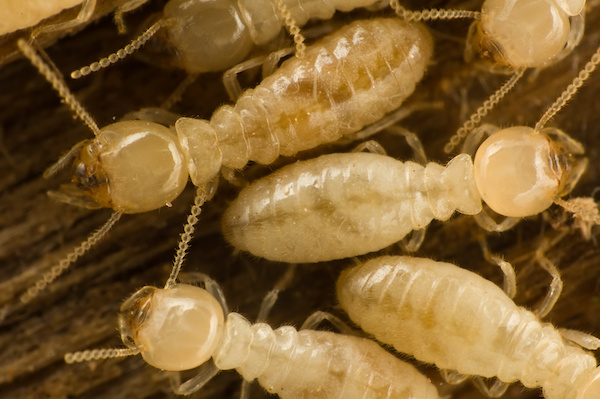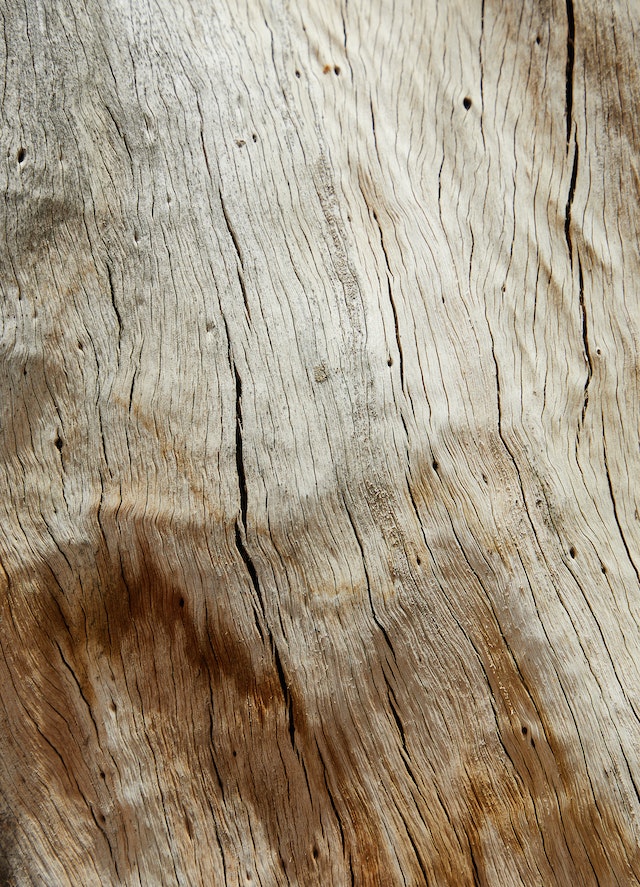
As North Carolina’s “silent destroyers,” termites wreak havoc on homes and businesses, causing damage to your property and wallet.
Understanding where these pests come from is crucial to effectively prevent and manage termite infestations, especially in regions like North Carolina.
So, where do termites come from?
In this comprehensive guide, we’ll delve into the world of termites and their origins in the Tar Heel State, shedding light on their behaviors, life cycles, and the unique challenges homeowners face when dealing with these elusive insects.
Termite Species in North Carolina
Termites are social insects that work tirelessly within large colonies, consisting of worker termites, soldiers, and reproductives.
These tiny, pale insects feed on cellulose-based materials, primarily wood, significantly threatening wooden structures and belongings.
North Carolina is home to several termite species, but the most common and problematic ones include:
1. Eastern Subterranean Termites
Eastern subterranean termites are the most prevalent termite species in North Carolina and the eastern United States. They are highly destructive and primarily live underground. These termites build mud tubes to access wooden structures, and their colonies can consist of hundreds of thousands of individuals.
2. Formosan Subterranean Termites
Formosan subterranean termites are another species found in North Carolina. They are known for their rapid feeding habits and large colony sizes, which can lead to extensive structural damage in a short period.
3. Drywood Termites
While less common than subterranean termites, drywood termites are still a concern in the state. They infest dry wood and can be more challenging to detect due to their lack of underground mud tubes.
Where Do Termites Come From?
Termites typically originate in the soil. The process begins when a mature colony releases swarming termites, alates, to find mates and establish new colonies. This swarming behavior is triggered by environmental cues, often related to temperature and humidity, which vary based on geographical location.
In North Carolina, termite swarms are most common in the spring, with the warm and humid conditions providing an ideal environment for these reproductive flights. During the swarm, winged alates take flight to find a mate, and once successful, they shed their wings and attempt to establish new colonies in soil, wood, or other cellulose-based materials.
Factors Contributing to Termite Presence in North Carolina
So, where do termites come from in North Carolina, and why do you have them on your property?

Many factors contribute to the high prevalence of termites in the beautiful state of North Carolina. To truly understand the termite challenge in the Tar Heel State, let’s take a closer look at these factors:
Climate
North Carolina’s climate, characterized by warm and humid summers, sets the stage for termite activity. Termites thrive in these conditions, making it a breeze for them to establish and maintain colonies.
Vegetation
The diverse and abundant vegetation in North Carolina provides termites with an all-you-can-eat buffet of cellulose-based materials for feeding and nesting. These pesky insects have a never-ending appetite for wood, and North Carolina’s lush landscape ensures they have a vast array of potential food sources.
From tree roots to decaying logs, termites have their pick of the litter, allowing them to thrive and expand their colonies with ease.
Construction Methods
Wooden construction methods are the norm in North Carolina, gracing residential and commercial structures. The prevalent use of wood as a building material makes it all too easy for termites to access potential food sources.
From structural supports to wooden framing, termites can quietly infiltrate these buildings, often going unnoticed while causing structural damage over time. Consequently, homes and businesses in North Carolina face an elevated risk of termite infestations.
Soil Conditions
The soil in North Carolina provides an accommodating environment for subterranean termites. The rich and well-draining soils of the state offer these termites an ideal setting for survival and expansion.
Their ability to tunnel through the soil and locate wooden structures is unhindered, contributing to the overall prevalence of termites throughout the state.
Urbanization
As North Carolina’s urban areas continue to flourish, termites often follow the trail of development. This urbanization process, including residential and commercial property development, can inadvertently disrupt termite colonies in wooded areas. In response, termites venture into new territories to find their next meal.
Detecting and Preventing Termite Infestations
Detecting termite infestations in their early stages is critical to preventing extensive damage. Signs of a termite infestation include mud tubes, discarded wings, damaged wood, and the presence of live termites.

Regular inspections by a qualified pest control professional can help promptly identify and address termite issues.
Preventing termite infestations in North Carolina involves several key steps:
- Regular Inspections: Schedule routine inspections to identify and address termite activity before it becomes problematic.
- Moisture Control: Reduce excess moisture around your home, as termites are attracted to damp environments.
- Wood Maintenance: Repair or replace any damaged or moisture-damaged wood around your property.
- Termite Barriers: Install physical or chemical termite barriers to protect your home.
- Professional Pest Control: Enlist the services of a professional pest control company with expertise in termite management for comprehensive protection.
Eliminate Termites with Innovative!
Understanding where termites come from, and their unique challenges in North Carolina is essential for homeowners and property owners. You can protect your property from these destructive insects with the proper knowledge and preventative measures.
Regular inspections, maintenance, and professional pest control services are your best allies in preserving your home and structures. By taking proactive steps with Innovative Pest Solutions, you can ensure a termite-free environment and maintain the integrity of your investments. Contact us today!





